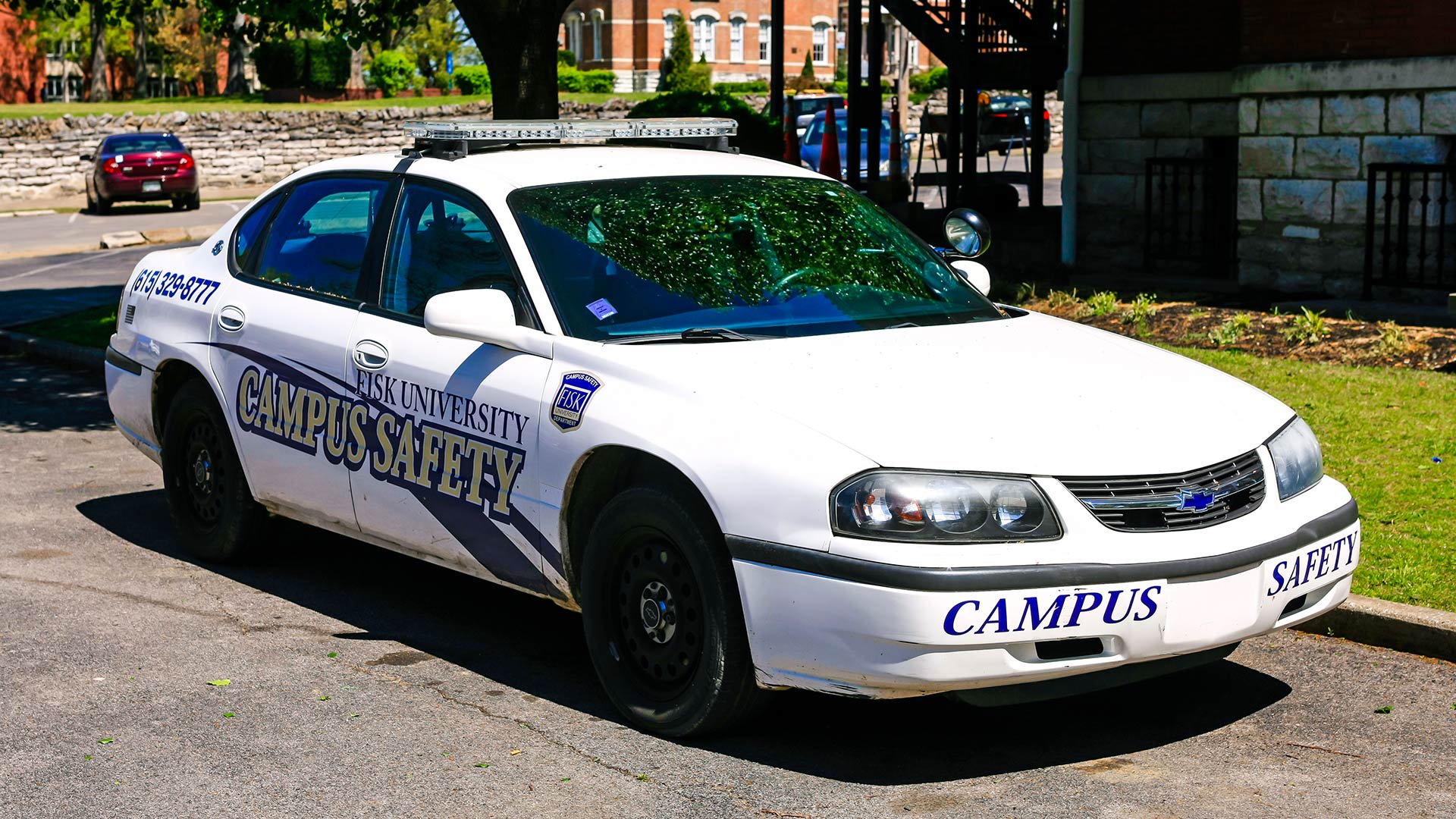
According to the latest Bureau of Justice Statistics (BJS) count from 2011–2012[1]https://bjs.ojp.gov/content/pub/pdf/cle1112.pdf, 68% of four-year colleges and universities with 2,500 students or more employ fully sworn campus police officers to maintain safety and order in their campus community. The trend continues to move in that direction, as more and more officers on campuses are given full policing powers; however, a substantial 32% of schools, and likely most small colleges and alternative programs, rely on non-sworn officers. Non-sworn officers have the same responsibility to keep students, faculty and visitors safe, but they do not have the power to arrest. This presents both challenges and opportunities.
For sworn officers, the power to arrest is one of their most potent tools. Not only does it give the officer the ability to restrict a person’s freedom when they are in violation of the law or out of control, but it is also meant to deter violating behavior in the future. When a member of the public understands that there is a grave consequence to not obeying the law or following a police directive, they often respond with deference. In fact, of the 28.9 million individuals who were stopped by the police in 2018[2]https://bjs.ojp.gov/content/pub/pdf/cbpp18st.pdf, just 12% were arrested.[3]https://ucr.fbi.gov/nibrs/2018/tables/pdfs/arrestees_adult_and_juvenile_age_category_by_arrest_offense_category_2018.pdf
The ability to arrest, to bring a person into custody and initiate the criminal justice process, confers extraordinary power. Without this power, non-sworn campus officers are left to find other ways to respond to and deter criminal behavior and violations of campus policy, and to take control when situations get tense. According to Alex Lucero, interim director of campus safety and security at Embry Riddle Aeronautical University in Prescott, Arizona, “The biggest difference between being a sworn agency and being non-sworn campus safety is that we have to use other tools in order to communicate with somebody. Our goal is to get the students to talk to us.” For him and his officers, communication and conflict resolution skills are what fortify their authority without the power of arrest.
At Embry Riddle, campus safety officers develop their authority by 1) being present, 2) building relationships and 3) handling tough encounters that might otherwise lead to arrest, like aggressive, resistant and noncompliant behavior, with targeted curiosity rather than force, a strategy learned through training in Insight Policing: Conflict Resolution for Law Enforcement.
Being present means constant foot patrols — not to crack down on violations, but to be a presence that the community is used to seeing on campus. Officers walk the residences and common spaces and check in on campus community members while doing their rounds. This presence helps officers build relationships when they are not actively enforcing. They’re available for informal chats and to offer their assistance — helping students into buildings, identifying parking spots, offering safe escort. When they are enforcing the rules and they run into conflict — when individuals are challenging the officer with aggression, resistance or noncompliance — the relationships they have provide an essential foundation for keeping things from escalating. When relationship isn’t enough, conflict resolution skills based on strategic communication and targeted curiosity help officers figure out why the individual is challenging the police interaction, which helps them calm the tension and discover critical information they can use to problem solve effectively.
“Our purpose as campus safety is to usher students into adulthood as supporters, not punishers. We realize that college students are in a fun and exciting, but also challenging, point in their lives. Our role is to help,” Lucero says. So when situations get tense, like at a recent party involving underage drinking, officers don’t use force to control the scene; they use curiosity.

A male student was aggressively refusing to let officers into the dorm room where they knew alcohol was being consumed. Sensing the potential for escalation, the officers recognized the student’s refusal as conflict behavior, and began to wonder and ask with genuine curiosity what was concerning the student — what did he think was going to happen if he let them in?
The response was illuminating. The young man, consumed by worry and intent on defending, began to ease as he was asked about his concern. He disclosed that he was afraid that he’d be referred to the dean and kicked out of school and that his parents would never forgive him. The officers were able to use that information to let the student know that he wouldn’t be kicked out of school, and that the school doesn’t call parents for drinking violations. The student was aggressive and resistant because he had the wrong information and was imagining the worst. Revealing that allowed the officers to work with the student’s concern and help, which in turn made the student feel OK about helping the officers.
As Lucero says, “Our job is to get information and give students resources that can help get them through the problem they’re facing. If we can treat them like a person who cares about how they feel, they give us that information.” His officers didn’t need the power of arrest to get control, they needed the power of curiosity and communication.
We can begin to understand how this works when we consider some of the research on why people obey the law even when they’re faced with consequences for criminal acts. Tom Tyler and other scholars suggest that when people feel as though they have been treated fairly in a police encounter — when they have been given respect, have the ability to voice what matters to them and have a sense that the officer is both transparent and impartial in their decision-making — they consider the encounter legitimate. Trust is built in the process, and people are more likely to both comply with the officer and refrain from future violations.
When we consider that the objective of arrest is ultimately to sanction violating behavior and by doing so deter future violations for the benefit and safety of everyone, the question emerges as to whether arrest is the best tool for the job. In fact, many around the country are advocating for reducing the frequency of arrest in police encounters, given the considerable costs to those arrested as well as in public funds. When we consider the impact that using alternative methods to gain compliance and effect behavior change have — in particular, relationship-building, communication and curiosity — the possibility opens that the power to arrest is less important than it might seem, and should be reserved as a power of last resort.
Non-sworn campus police are finding that they don’t need arrest powers to perform effective enforcement and keep campuses safe and secure. Curiosity, communication and trust give them the authority and information they need to sanction bad behavior and deter violations through education and resources. With a national call to reduce arrests and improve relationships between police and the community, perhaps sworn officers could benefit from a peek into the campus policing playbook.
As seen in the July 2022 issue of American Police Beat magazine.
Don’t miss out on another issue today! Click below:






